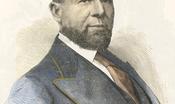author
Ijeoma Nicole Njaka
Ijeoma Njaka is a writer and education professional committed to social justice. As an undergraduate student, she spent summers teaching art, mathematics, and Swedish classes to bright, urban middle schoolers at LearningWorks at Blake: A Breakthrough Program in Minneapolis, Minn. She graduated from Brown University with a bachelor’s degree in Public Policy and American Institutions. She created U.S. history curriculum with a people’s history approach at Teaching for Change in Washington, D.C. Most recently, she worked at a Boston nonprofit to mentor first-generation college-bound, low-income




